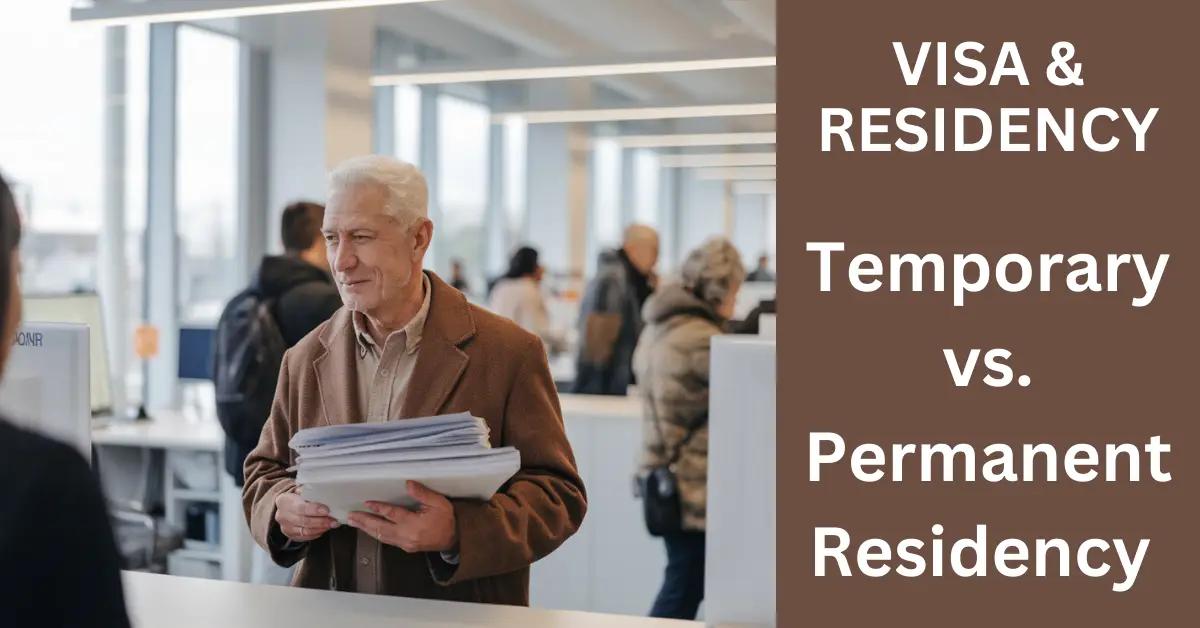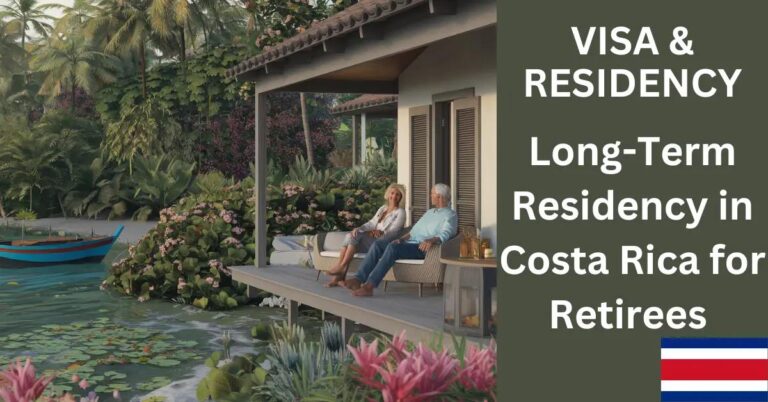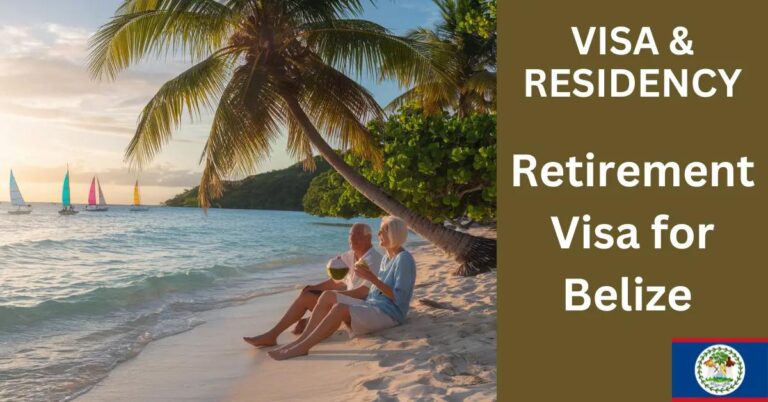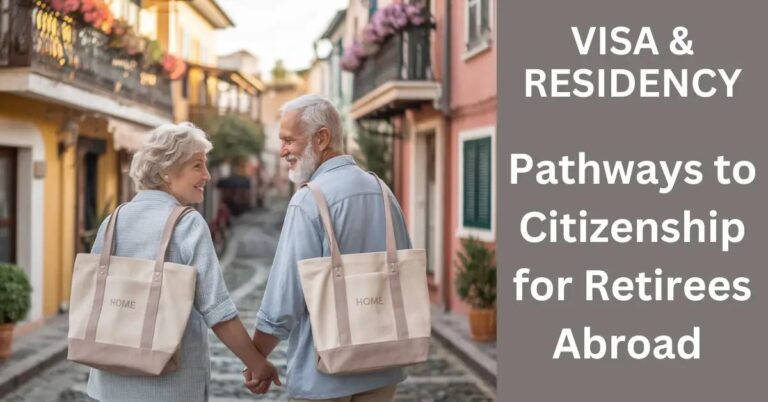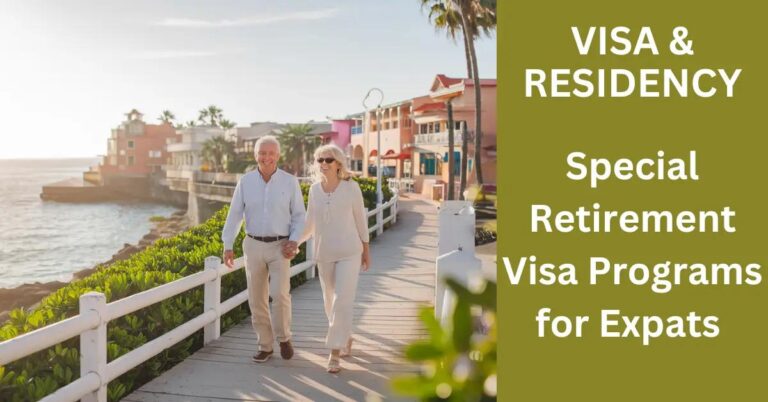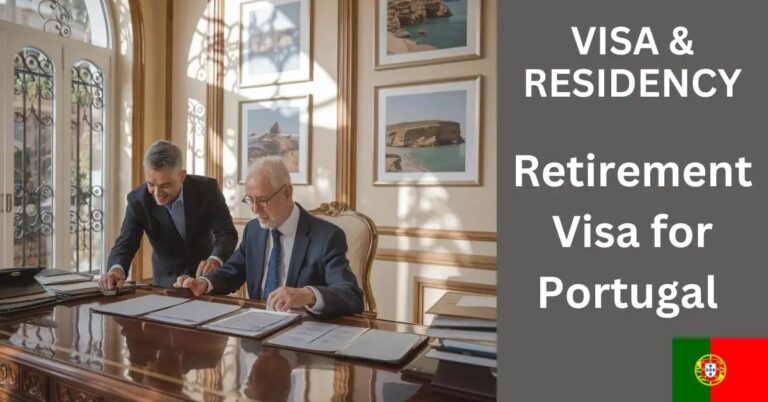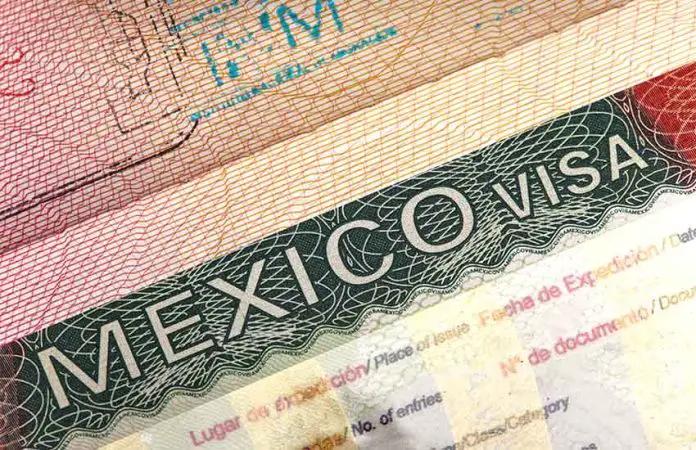TL;DR:
- Temporary residency offers flexibility without long-term commitment but limited access to local services and job opportunities.
- Permanent residency requires significant investment and time but provides stability, access to benefits, and potential citizenship.
- Portugal and Thailand have straightforward retirement visas; popular retirement destinations also include Spain, Mexico, and Costa Rica.
- Residency application involves proof of income and, possibly, a criminal background check.
- Taxes abroad vary; tax treaties may prevent double taxation.
- Healthcare systems differ; some countries require private insurance for retirees.
- Language barriers can be overcome through local language classes and expat groups.
- Consider cost of living, healthcare quality, and expat community presence when choosing a retirement location.
Deciding between temporary and permanent residency can feel overwhelming. As retirees considering a move abroad, this choice impacts your future. Each option has unique benefits and challenges, and your decision affects not just your lifestyle, but also your financial and healthcare needs. In our guide, I’ll help you understand each residency type, making your choice clearer and simpler, ensuring you find the best fit for this exciting new chapter.
Temporary vs. Permanent Residency: What's Best for Retirees?
When considering relocating abroad for retirement, understanding the difference between temporary and permanent residency is key. Many ask, "What is the difference between temporary residence and permanent residence?" The answer is straightforward. Temporary residency allows you to live in a country for a specific time. It’s ideal for retirees who want flexibility in deciding where to settle down. Within certain limits, it offers the ability to explore different lifestyles without a long-term commitment.
In contrast, permanent residency provides a long-term solution. It typically involves a more comprehensive application process. Permanent residency is suited for those who wish to create a lasting home in a new place. It gives retirees stability and often facilitates access to local benefits, such as healthcare.
The comparison of residency types often includes several key differences. Temporary residency usually comes with fewer benefits but allows retirees to test the waters in a new country. You might need to renew your status periodically. This can be a simple process or involve some bureaucracy, depending on the country's rules.
Permanent residency, however, conveys more stability and usually includes benefits like home ownership rights. You don’t need to frequently renew your status, and it may lead to citizenship down the line.
Both residency types have distinct benefits and drawbacks for retirees. With temporary residency, you enjoy flexibility and fewer initial commitments. But drawbacks include limited access to some services and potential restrictions on work options. Permanent residency offers a stable life and greater integration into society. However, it requires a more significant initial investment and a longer wait for acceptance.
For further information on retirement visa benefits, understanding each option will help in making an informed choice. Whichever path you choose, the goal is to find the residency type that best suits your retirement dreams.
Temporary vs. Permanent Residency: What's Best for Retirees?
Planning where to retire abroad can be exciting. Popular options often include Spain, Portugal, Mexico, Thailand, and Costa Rica, each offering unique cultures and climates. But choosing the best fit involves more than just the scenery. When deciding where to retire, consider the cost of living, access to healthcare, and community engagement. For retirees, visa policies can also play a major role.
Which country has the easiest retirement visa? Thailand and Portugal are known for simple retirement visas. Thailand offers a "Retirement Visa" and Portugal has the "D7 Visa" for retirees. These visas require proof of stable income and, sometimes, a police check. Mexico and Costa Rica are also popular due to their forgiving visa processes.
The best countries for retirement visas offer perks like low-income thresholds and simple application processes. Often, these countries have thriving expat communities, making it easier to integrate. Portugal and Spain, with their vibrant cultures and friendly locals, stand out for many retirees. Countries like Panama offer the "Pensionado Program," which gives discounts on various services for retirees.
Many factors help determine the best country for your retirement. Consider climate, healthcare, culture, language, and safety. Access to affordable and quality healthcare is vital for retirees. Aside from healthcare, the proximity of expat groups can influence your happiness and integration.
Residency options like temporary or permanent residencies impact your time abroad. Temporary residencies might offer more flexibility, while permanent options provide more stability. When thinking about moving, evaluate each country's policies to see what suits your retirement goals. Understanding these factors well can make your transition smoother and more enjoyable.
Applying for Residency Permits as a Retiree
To apply for residence permits for retirees, you need to follow specific steps. Start by researching the country of interest and its residency options. Some countries offer retirement visas, like Portugal or Thailand. Each country has unique requirements.
The residency application process involves gathering necessary documents. These include your passport, proof of income, and possibly a health certificate. Make sure all documents are current and correct.
Next, focus on the financial requirements. Countries need proof of your ability to support yourself. For instance, temporary residency in Mexico requires around $1,620 monthly. Always check the latest guidelines for each location.
Understanding legal residency requirements is crucial. You may need to show a criminal background check or health insurance proof. Some countries also require an in-person interview.
When asking, “Which countries offer retirement visas?” the answer is many! Popular countries include Costa Rica, Malaysia, and Spain. Each offers unique benefits, so compare their requirements carefully.
Prepare your application well to increase success chances. Start by organizing your documents and ensuring they meet the legal residency requirements. Research any additional paperwork needed, as it can change.
Knowing the exact financial needs is also vital. Besides monthly income, some countries ask for savings proof. Visit each country's consulate website for precise information.
Lastly, here are tips for a smooth application. Plan well ahead of your move. Ensure documents are translated if required. Keep in touch with the consulate and clarify any doubts early on. This approach makes this often daunting process much easier and clearer.
Managing Finances and Taxes Overseas for Retirees
What are the tax implications for retirees abroad? Taxes for retirees abroad can vary widely. Some countries have tax treaties with your home country. These treaties can help avoid double taxation on your income. It's important to know each country's tax laws. While some nations can tax worldwide income, others don’t. Detailed planning with a tax expert ensures you comply with each tax obligation. Understanding the specifics of tax implications helps in smart planning.
Discuss the cost of living in popular retirement destinations. Popular retirement spots can have differing living costs. For instance, Thailand might offer affordable rent and food, whereas Ireland could be pricier. Knowing a country's cost of living helps plan a budget. Consider factors like housing, food, and healthcare. It's wise to research the living standards and expenses of your chosen country.
How can retirees plan financially for living overseas? Start by assessing budgets and savings. Calculate monthly expenses in the new country. Include leisure and travel expenses in your plans. Study the local economy to understand currency value and exchange rates. Consider different financial instruments to manage your savings. A reliable financial planner could give valuable advice. Planning well helps to maintain stability abroad.
Overview of residency tax implications and treaties. Residency status can change taxes. Some countries tax based on residency, others on citizenship. Tax treaties can prevent double taxation of pension income. Find out if the U.S. has a treaty with your destination. Consulting a tax advisor simplifies understanding of these laws.
Advice on managing retirement income and taxes overseas. Keep track of currencies and exchange rate changes. Diversify investments to spread risk. Consult professionals for best tax strategies. Consider direct deposit of retirement income into a local bank account. This can minimize currency conversion losses. Proper planning ensures retirees enjoy financial security while overseas. Reaching financial peace abroad is key for a stress-free retirement.
Healthcare Access and Insurance for Retirees Abroad
How do healthcare systems work for retirees abroad? The healthcare systems vary greatly in each country. Some countries boast public healthcare that's affordable even for retirees. Others might require you to buy private insurance. In some places, if you buy expat health insurance or pay a small fee, you can access top-notch services.
Understanding healthcare access and quality in retirement countries is key. Health services change from country to country. It's smart to know how each system works before moving. Look for countries with good care and costs that suit your budget.
What are the health insurance requirements for expats? Requirements differ by country. Many expect you to have health insurance sorted before arriving. Some nations require special expat insurance that meets local laws. Always check what kind of insurance you need for each place. You don't want surprises later!
Health insurance options and requirements for retirees can get complicated. Some offer plans through an employer or a private company. Government plans might also be available. It's crucial to shop around and find the right option that meets your needs. Each has different coverages, so read the fine print!
Comparing healthcare systems across different countries can help a lot. The United States relies mostly on private health care, for example. Meanwhile, countries like Spain have public care options. Each system has its pros and cons based on what you're used to and need.
We have tips for selecting the right health insurance plan while living abroad. Know your medical history and needs. Some plans cover more, and some less, so choose carefully. Check if the plan covers all emergencies. Also, check how insurance works with local hospitals. Good research ensures you stay healthy and worry-free!
Temporary vs. Permanent Residency: What's Best for Retirees?
Retirees often face language hurdles in new countries. How do retirees integrate into expat communities? Begin by seeking out expat groups. They help share experiences and advice for new arrivals. Many places have clubs or meet-ups for expats. Joining these groups is a great way to fit in better.
Learning the local language can seem tough, but it is useful. How can retirees overcome language barriers abroad? Use language apps or take local classes. These tools help you learn at your pace. Immersion in everyday activities also boosts language skills. Practice speaking with locals, even if it is hard. Make mistakes and learn from them.
Understanding culture helps integration, too. Each country has unique norms and values. Be open to learning and respecting these aspects. Participate in local festivals or events. Learn about customs by observing and asking questions. This will bring you closer to the community.
Local expat communities offer more than just friendship. They provide resources like housing tips and healthcare advice. They know the best spots to eat or places to visit. Some might have language support groups or exchange programs. Seeking help from those who have adapted makes things easier.
Language learning resources are essential for newcomers. Many countries offer free or inexpensive classes. Libraries might have language books or CDs. Some expats start tandems or conversation swaps. These resources make the transition smoother and more enjoyable.
Adapting to a new culture takes time, but support is available. Embrace it, and your retirement abroad will be rewarding. Integrating into a community can make the move worthwhile. Building a network in your new home eases the adjustment. Enjoy exploring new languages and cultures.
Conclusion
Choosing between temporary and permanent residency can be tough for retirees. Understanding their benefits and drawbacks is key. Retire abroad with the right residency suits your needs. Look for favorable retirement visas and think about legal steps. Don't overlook the cost of living, tax rules, and healthcare needs. Expat communities can help you adjust. Residency is more than paperwork; it's about your new life chapter. Plan carefully to enjoy every moment abroad.

